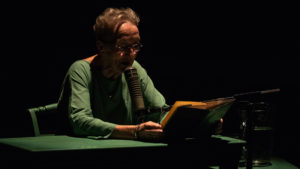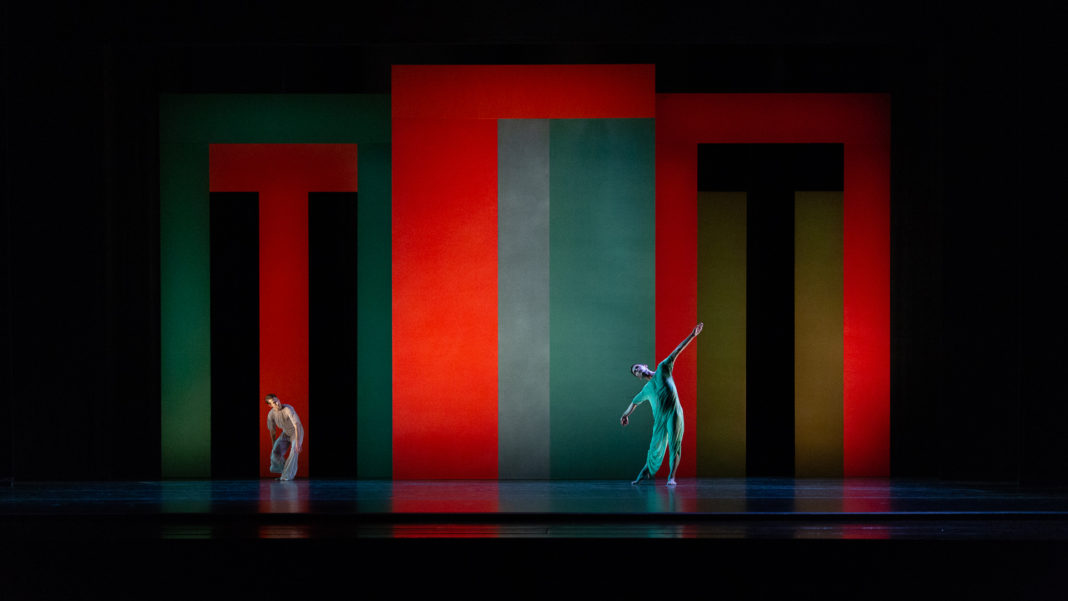When I spoke with actor Jeremy Irons in 2018, he said of T.S. Eliot’s Four Quartets, “They are quite tough, quite difficult, but immensely satisfying… He says in Four Quartets that words don’t do it. But we keep trying. I love that whole aspect of his quest for meaning and community and knowing he was failing all the time.”
As if to prove that “words don’t do it,” American choreographer Pam Tanowitz, Finnish composer Kaija Saariaho, and American painter Brice Marden have collaborated to offer their presentation of Four Quartets. There are two performances this weekend at Royce Hall.
Of course since the work can’t be done without words, acclaimed actress Kathleen Chalfant will be performing the text live at both performances.
Four Quartets is comprised of four different poems written by Eliot over a period of six years. They are Burnt Norton, Easy Coker, The Dry Salvages and Little Gidding. Thematically Eliot is exploring mankind’s place in the world and our relationships with both time and God.
Alistair Macaulay in the New York Times said of Tanowitz’s work that, “After one viewing, on Saturday night, I’m inclined to call this the most sublime new dance since Merce Cunningham’s ‘Biped’ (1999).”
Composer Saariaho is one of the most acclaimed contemporary composers of our time. She recently had worked performed by the LA Philharmonic New Music Group. She writes for large ensembles, solo instruments, opera, and more.
81-year-old artist Brice Marden has turned four of his works into scrims for Four Quartets. His work is most often described as minimalist.

Chalfant was Tony nominated for her performance in Angels in America: Millennium Approaches where she played the parts of Rabbi Chemelwitz, Henry, Hannah Pitt, Ethel Rosenberg. In 199 she starred in the play Wit and earned multiple awards for her performance.
Four Quartets is certain to be one of the most unique performances of the year. I highly recommend you make plans to attend either performance.
Or if you love it, why not both?
For tickets go here.
All photos by Maria Baranova/Courtesy of CAP UCLA











